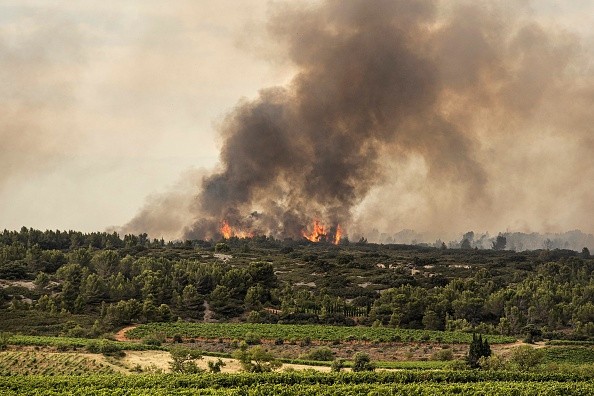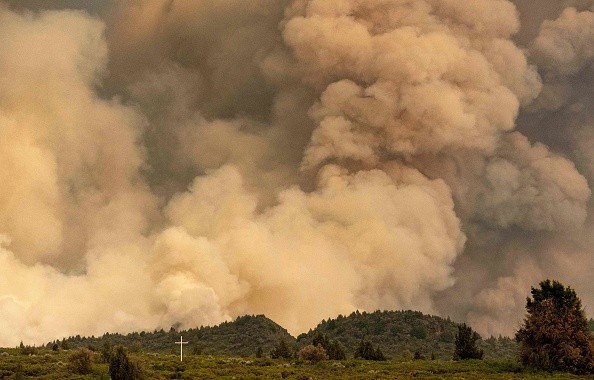Wildfires are causing threats to homes in Canada and on the West Coast, but the smoke produced by the wildfires is polluting the air, getting as far as New York.

Air Pollution
Normally, Samir Kumar can sight skyscrapers downtown, from his uptown Manhattan home in Morningside Heights. But when this week's smoke from wildfires blazing in the western U.S. and Canada drove the jet stream to the East Coast, this made the city's skyline blurred out.
Kumar said: "To see wildfires have an actual effect on this coast...I was in disbelief."
Kumar, 29, suffers from asthma, and as he went on errands in his neck of the woods, he says he felt the air was thick. The 29-year-old experienced tightness in his chest, dyspnea, and had to take bigger breaths, but he tried staving off an asthma attack.
Kumar's family is from India, and he says he's witnessed such bad air quality in New Delhi, but has never witnessed such in the United States.
Oregon's Bootleg Fire
In British Columbia, almost 300 wildfires are currently blazing and around 80 are burning through states in the United States West. The heat waves aggravated the fires and made drought last longer in the west, two weather patterns made more serious by climate change.
Oregon's Bootleg Fire is now the largest fire, and as of Friday had consumed over 400,000 acres - a region about nine times the size of Washington, D.C., air quality alerts were also issued in this area. Hazy skies were seen from Boston to North Carolina.
The widely distributed impacts highlight that this problem is no longer a problem that is just for states like California, where wildfires usually take place.
During a massive fire event, wildfire smoke was responsible for 25 percent of dangerous air pollution in the United States, research released last January in the Proceedings of the National Academy of Sciences reveals.

PM2.5
The director of air pollution and health research at Stanford University, Mary Prunicki said: "What they're experiencing on the East Coast from our West Coast fires shows it's a nationwide and a global problem."
Each plume of smoke produced due to a wildfire is a special mixture, from the kinds of trees consumed by the fire to buildings or other objects that may have been burned by the fire. Prunicki said fine particulate matter makes up about 80 percent of the smoke, and this fine particulate matter is composed of liquid and solid droplets from things that were burnt.
Because small particles go into the human lungs and causes respiratory illnesses, researchers track particles of 2.5 microns in diameter, referred to as PM2.5, which are more threatening than particulate matter of large sizes because they can penetrate into the bloodstream.
Related Article : Wildfires Cause Negative Effects From Worsening Smoke Pollution
For more news, updates about wildfires and similar topics don't forget to follow Nature World News!
© 2025 NatureWorldNews.com All rights reserved. Do not reproduce without permission.





